On Friday, February 3, President Trump issued an executive order directing the Secretary of Treasury to report, within 120 days, on whether governmental rules and policies promote or inhibit the order’s Core Principles for Financial Regulation. These generally stated Principles stress investor choice, economic growth and international competition as well as the more traditional goals of financial regulation such as preventing bailouts, analyzing risk and increasing accountability.
Although the executive order did not mention Dodd-Frank by name, President Trump made clear: “We expect to be cutting a lot of Dodd-Frank, because frankly, I have so many people, friends of mine that had nice businesses, they can’t borrow money.” By contrast, the Federal Reserve data show that total loans and leases by banks grew by almost 7% per year during the last three years.
Despite the White House’s position, Congress is not likely to repeal most of Dodd-Frank; that would require 60 votes in the Senate and the Republicans have only 52 there. On the other hand, Congress is likely to amend specific aspects of Dodd-Frank and Trump-appointed regulators will change a broader range of financial rules.
- Legislative Actions to Limit Dodd-Frank
Under the Congressional Review Act (CRA), a simple majority of the Senate and the House, together with the President, can repeal agency regulations adopted within the last 60 legislative business days – on or after June 13, 2016. Congress has already used the CRA to repeal a SEC rule, mandated by Dodd-Frank, requiring companies in extractive industries to disclose publicly any payments they make to governments for access to natural resources. While this rule was included in Dodd-Frank with bipartisan support to shine light on potential corruption, it was strongly opposed by US oil and gas companies as putting them at a disadvantage to foreign competitors.
Other financial regulations promulgated in the last few months of the Obama administration are vulnerable to repeal under the CRA. The most likely candidates are the rules of the Consumer Financial Protection Bureau, created by Dodd Frank – both the restrictions adopted on prepaid debit cards and the rules in process on payday lending. Other candidates for CRA repeal include capital requirements for banks trading derivatives issued by the banking agencies, and rules on derivative trading voted upon by the Commodities Futures Trading Commission (CFTC) in late 2016.
In passing Dodd-Frank, Congress gave the Consumer Financial Protection Bureau (Bureau), like many banking regulators, the power to determine its own budget, subject to annual caps. Congress will probably force the Bureau to follow the normal appropriations process as part of what is called budget reconciliation, which requires only majority votes in the House and the Senate. In the appropriations process, the Republicans on the relevant Congressional committees will try to impose some limits on the regulatory activities of the Bureau.
In addition, there seems to be a bipartisan consensus to narrow the minimum size of banks subject to the Financial Stability Council, created by Dodd-Frank to address systemic risk in the financial system. The Council, with representatives from most financial regulators, now can impose higher regulatory requirements on banks with $50 billion or more assets. To focus the Council’s work on the largest institutions, Congress is likely to increase the minimum threshold for systemically risky banks from $50 billion to over $200 billion.
- Agency Revisions of Dodd-Frank Rules
The Trump Administration will be able to replace most financial regulators within the next year. The Chairs of the SEC and the CFTC have already resigned, while the terms of the Comptroller of the Currency and the FDIC will end by the fall. The Fed Chairmanship of Janet Yellen expires in early 2018, and the Obama Administration never appointed a Fed Vice Chairman for regulation. Under a recent court ruling, currently stayed on appeal, President Trump may remove the head of the Bureau without “cause”
Of course, Trump officials will have to go through the notice and comment process to revise substantially or eliminate major rules adopted under Dodd-Frank. However, financial regulators can more easily relax these rules by flexible interpretations or minimal enforcement. As the new head of the President’s National Economic Council remarked on Friday, repeating a prior comment from Senator Elizabeth Warren (D-Mass): “Personnel is policy.”
Large financial institutions will definitely benefit from this turnover in regulatory personnel. For example, although legislation would be needed to repeal the Volcker Rule’s restrictions on proprietary trading by banks, their regulators are likely to add exemptions and interpret existing regulations liberally. Similarly, the new members of the Financial Stability Council will probably back away from labeling large insurers as systemically risky – a label now subject to a judicial challenge.
Global banks based in the US can also count on Trump officials to help delay the adoption of the latest version of international capital standards called Basel IV – based on the ratio of bank capital to “adjusted” assets. For this ratio, bank asset values are reduced if they are considered lower risk such as US Treasury bonds. However, several prominent Republicans are pushing for US banks also to meet a higher leverage ratio – a ratio of bank capital relative to total assets without any adjustments – which could pose a significant challenge to US banks.
For smaller banks, several studies show that their compliance costs are so high that they reduce lending volumes. The complaints of small banks focus on five main areas:
- Truth in Lending Act and other rules relating to credit card disclosures and fees
- Real Estate Settlement Procedures Act on modifications of residential mortgages
- Bank Secrecy Act and anti-money laundering rules on customer identification
- Fair Credit Reporting Act and the identify theft red flags reporting program
- Capital planning and stress testing implemented under Dodd Frank
The Chairman of the House Financial Services Committee has introduced a bill that would give US banks a choice – they could be exempted from most of Dodd-Frank if they would maintain a relatively high capital cushion. But this bill is not likely to pass the Senate. Much more likely is administrative relief designed to help small and mid-size banks. - Truth in Lending Act and other rules relating to credit card disclosures and fees
Conclusions
In short, the Trump Administration is very likely to reduce regulatory burdens on the financial sector WITHOUT repealing Dodd-Frank. Although senior Trump officials have also said they would like to establish a “modern” version of Glass-Steagall and finally resolve the status of mortgage giant Fannie Mae, Congress will probably not be able to reach a broad enough consensus to enact legislation on these difficult issues.
Robert Pozen has been a nonresident senior fellow at Brookings since 2010. In 2015, he generously committed to endow the Director’s Chair for the Urban-Brookings Tax Policy Center. Until 2010, Pozen was executive chairman of MFS Investment Management and, before 2002, served in various positions at Fidelity Investments. He did not receive financial support from any firm or person for this article or from any firm or person with a financial or political interest in this article. He is currently not an officer, director, or board member of any organization with an interest in this article.
The Brookings Institution is committed to quality, independence, and impact.
We are supported by a diverse array of funders. In line with our values and policies, each Brookings publication represents the sole views of its author(s).
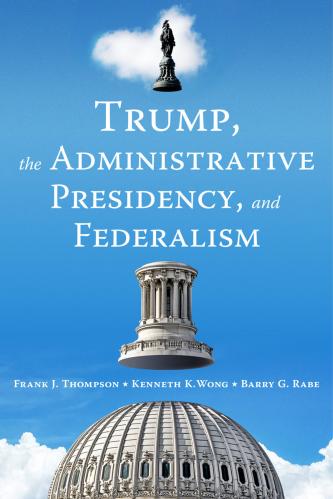
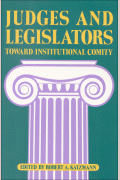


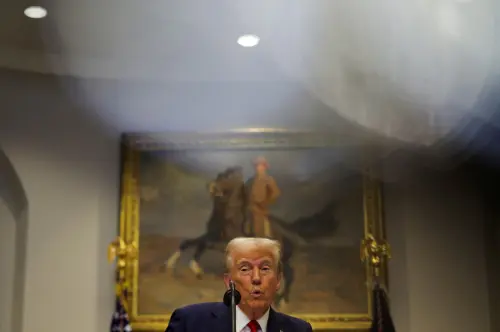
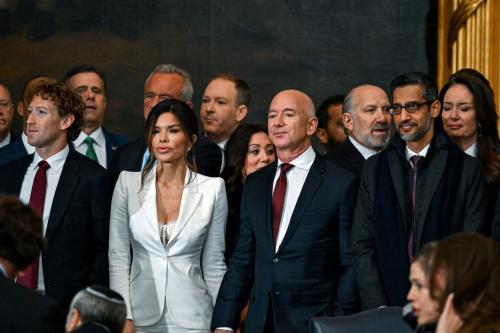
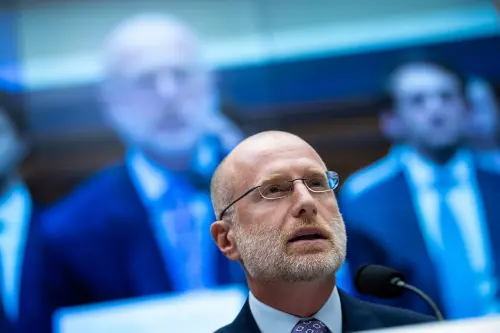
Commentary
What will happen to Dodd-Frank under Trump’s executive order?
February 6, 2017